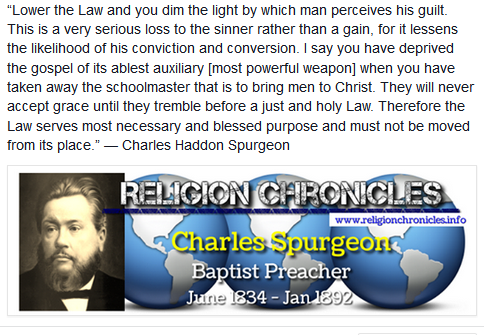
Charles Haddon Spurgeon
Born: June 19, 1834, in Kelvedon, Essex, United Kingdom
Died: January 31, 1892, in Menton, France
Spurgeon was a British preacher, pastor of Metropolitan Tabernacle in London for 38 years. A peerless preacher and expositor, multi-volume collections of his sermons have sold hundreds of thousands of copies over the years. He founded Spurgeon’s College, established an orphanage, and exhorted his congregants to assist the poor in Victorian London. He defended a high view of the authority of Scripture. It is reported that Queen Victoria waited impatiently for transcriptions of his sermons to be delivered to Windsor Castle by express messenger.
Born: June 19, 1834, in Kelvedon, Essex, United Kingdom
Died: January 31, 1892, in Menton, France
Spurgeon was a British preacher, pastor of Metropolitan Tabernacle in London for 38 years. A peerless preacher and expositor, multi-volume collections of his sermons have sold hundreds of thousands of copies over the years. He founded Spurgeon’s College, established an orphanage, and exhorted his congregants to assist the poor in Victorian London. He defended a high view of the authority of Scripture. It is reported that Queen Victoria waited impatiently for transcriptions of his sermons to be delivered to Windsor Castle by express messenger.
 Steph J Nichols
Steph J Nichols
Spurgeon has got a great quote. At one point he says, I find it odd that those who think so highly of what the Holy Spirit teaches them, think so little of what the Holy Spirit teaches others also. And what is behind Spurgeon’s quote is this idea that the Holy Spirit is not a unique gift to a Christian in the 21st century. The Holy Spirit is not a unique gift to an American Christian and the 21st Century. So what we need to realize as Christians is that the Holy Spirit is a corporate gift. --Stephen J Nichols; Crossway; What Are Some Dangers of Neglecting Church History? 7.21.23

July 11, 2023:
One hundred and thirty years after his death, one of Britain’s most famous preachers has been recognized with an academic degree. Charles Haddon Spurgeon never received a theological qualification, but now the Bible college named after him has remedied that.
Last weekend, his great, great-granddaughter, received an honorary degree on his behalf from Spurgeon’s College. C.H Spurgeon established the Metropolitan Tabernacle at the Elephant and Castle in London as a large, independent Reformed Baptist church. In 1861 it was the best attended non-conformist church of its day.
One hundred and thirty years after his death, one of Britain’s most famous preachers has been recognized with an academic degree. Charles Haddon Spurgeon never received a theological qualification, but now the Bible college named after him has remedied that.
Last weekend, his great, great-granddaughter, received an honorary degree on his behalf from Spurgeon’s College. C.H Spurgeon established the Metropolitan Tabernacle at the Elephant and Castle in London as a large, independent Reformed Baptist church. In 1861 it was the best attended non-conformist church of its day.
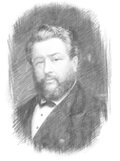 Cgarles Spurgeon
Cgarles Spurgeon
There is something very touching in this admonition, “Grieve not the Holy Spirit of God.” It does not say, “Do not make him angry.” A more delicate and tender term is used — “Grieve him not.” . . . For grief is a sweet combination of anger and of love. It is anger, but all the gall is taken from it. Love sweetens the anger, and turns the edge of it, not against the person, but against the offense. --Charles Spurgeon
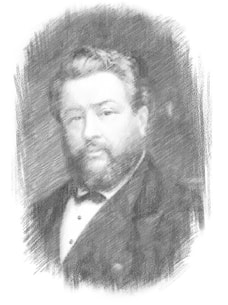 Charles Spurgeon
Charles Spurgeon
God’s altar was to be built of unhewn stones, that no trace of human skill or labor might be seen on it. Human wisdom delights to trim and arrange the doctrines of the cross into a system more artificial and more congenial with the depraved tastes of fallen nature; however, instead of improving the gospel carnal wisdom pollutes it, until it becomes another gospel, and not the truth of God at all. All alterations and amendments of the Lord’s own Word are defilements and pollutions.
The proud heart of man is very anxious to have a hand in the justification of the soul before God; preparations for Christ are dreamed of, humblings and repentings are trusted in, good works are cried up, natural ability is much vaunted, and by all means the attempt is made to lift up human tools upon the divine altar. It were well if sinners would remember that so far from perfecting the Saviour’s work, their carnal confidences only pollute and dishonor it. The Lord alone must be exalted in the work of atonement, and not a single mark of man’s chisel or hammer will be endured.
There is an inherent blasphemy in seeking to add to what Christ Jesus in His dying moments declared to be finished, or to improve that in which the Lord Jehovah finds perfect satisfaction. Trembling sinner, away with your tools. Fall on your knees in humble supplication. Accept the Lord Jesus to be the altar of your atonement, and rest in Him alone. --Charles Spurgeon
The proud heart of man is very anxious to have a hand in the justification of the soul before God; preparations for Christ are dreamed of, humblings and repentings are trusted in, good works are cried up, natural ability is much vaunted, and by all means the attempt is made to lift up human tools upon the divine altar. It were well if sinners would remember that so far from perfecting the Saviour’s work, their carnal confidences only pollute and dishonor it. The Lord alone must be exalted in the work of atonement, and not a single mark of man’s chisel or hammer will be endured.
There is an inherent blasphemy in seeking to add to what Christ Jesus in His dying moments declared to be finished, or to improve that in which the Lord Jehovah finds perfect satisfaction. Trembling sinner, away with your tools. Fall on your knees in humble supplication. Accept the Lord Jesus to be the altar of your atonement, and rest in Him alone. --Charles Spurgeon
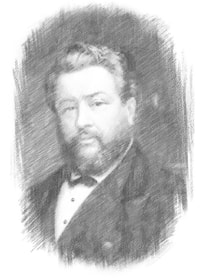 Charles Spurgeon
Charles Spurgeon
" A backslider, if there be a spark of life left in him will groan after restoration. In this renewal the same exercise of grace is required as at our conversion. We needed repentance then; we certainly need it now. We wanted faith that we might come to Christ at first; only the like grace can bring us to Jesus now. We wanted a word from the Most High, a word from the lip of the loving One, to end our fears then; we shall soon discover, when under a sense of present sin, that we need it now. No man can be renewed without as real and true a manifestation of the Holy Spirit’s energy as he felt at first, because the work is as great, and flesh and blood are as much in the way now as ever they were. Let thy personal weakness, O Christian, be an argument to make thee pray earnestly to thy God for help. Remember, David when he felt himself to be powerless, did not fold his arms or close his lips, but he hastened to the mercy-seat with “renew a right spirit within me.” Let not the doctrine that you, unaided, can do nothing, make you sleep; but let it be a goad in your side to drive you with an awful earnestness to Israel’s strong Helper. O that you may have grace to plead with God, as though you pleaded for your very life–“Lord, renew a right spirit within me.” He who sincerely prays to God to do this, will prove his honesty by using the means through which God works. Be much in prayer; live much upon the Word of God; kill the lusts which have driven your Lord from you; be careful to watch over the future uprisings of sin. The Lord has his own appointed ways; sit by the wayside and you will be ready when he passes by. Continue in all those blessed ordinances which will foster and nourish your dying graces; and, knowing that all the power must proceed from him, cease not to cry, “Renew a right spirit within me.” -CH Spurgeon “Renew a Right Spirit Within Me”
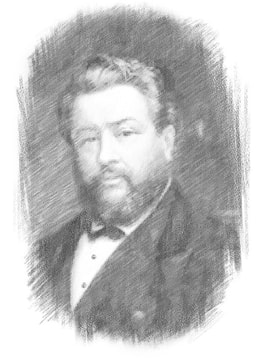 Charles Spurgeon
Charles Spurgeon
Why art thou cast down, O my soul? If God be thine, why this dejection? If he uplifts thee, why art thou so near the ground? The dew of love is falling, O withering heart, revive. And why art thou disquieted within me? What cause is there to break the repose of thy heart? Wherefore indulge unreasonable sorrows, which benefit no one, fret thyself, and dishonour thy God? Why overburden thyself with forebodings? Hope in God, or wait for God. There is need of patience, but there is ground for hope. The Lord cannot but avenge his own elect. The heavenly Father will not stand by and see his children trampled on for ever; as surely as the sun is in the heavens, light must arise for the people of God, though for awhile they may walk in darkness. Why, then, should we not be encouraged, and lift up our head with comfortable hope? For I shall yet praise him. Times of complaint will soon end, and seasons of praise will begin. Come, my heart, look out of the window, borrow the telescopic glass, forecast a little, and sweeten thy chamber with sprigs of the sweet herb of hope. Who is the health of my countenance, and my God. My God will clear the furrows from my brow, and the tear marks from my cheek; therefore will I lift up my head and smile in the face of the storm. The Psalm has a blessed ending, such as we would fain imitate when death puts an end to our mortal existence. --Charles Spurgeon
"Satan is sure to try to hinder us when we are earnest in prayer." – Charles Spurgeon
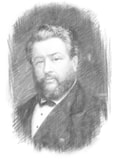 Charles Spurgeon
Charles Spurgeon
“Lamentations 3:2:
He has led me and made me walk In darkness and not in light.
This seems to be the hardest part of our lot, that God should lead us into darkness: ‘He hath led me, and brought me into darkness.’ Yet dear brethren, that is, on the other hand, the sweetest thing about our trial; because, if the darkness be in the place where God has led us, it is best for us to be in the dark.” --Charles Spurgeon
He has led me and made me walk In darkness and not in light.
This seems to be the hardest part of our lot, that God should lead us into darkness: ‘He hath led me, and brought me into darkness.’ Yet dear brethren, that is, on the other hand, the sweetest thing about our trial; because, if the darkness be in the place where God has led us, it is best for us to be in the dark.” --Charles Spurgeon
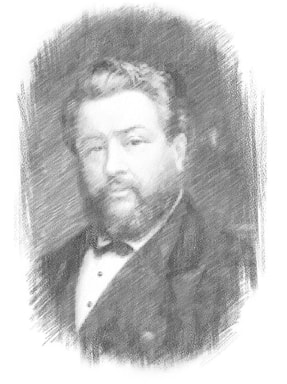 Charles Spurgeon
Charles Spurgeon
It was the work of the priest to go into the holy place and to trim the seven-branched lamp of gold: see how our Great High Priest walks in the midst of the seven golden candlesticks: his work is not occasional, but constant. Wearing robes which are at once royal and priestly, he is seen lighting the holy lamps, pouring in the sacred oil, and removing impurities which would dim the light. Hence our Lord's fitness to deal with the churches, which are these golden lamp-stands, for no one knows so much about the lamps as the person whose constant work it is to watch them and trim them. No one knows the churches as Jesus does, for the care of all the churches daily comes upon him, he continually walks among them, and holds their ministers as stars in his right hand. His eyes are perpetually upon the churches, so that he knows their works, their sufferings, and their sins; and those eyes are as a flame of fire, so that he sees with a penetration, discernment, and accuracy to which no other can attain. We sometimes judge the condition of religion too leniently, or else we err on the other side, and judge too severely. Our eyes are dim with the word's smoke; but his eyes are as a flame of fire. He sees the churches through and through, and knows their true condition much better than they know themselves. The Lord Jesus Christ is a most careful observer of churches and of individuals; nothing is hid from his observant eye.
As he is the most careful observer, so he is the most candid. He is ever "the faithful and true witness." He loves much, and therefore he never judges harshly. He loves much, and therefore he always judges jealously. Jealousy is the sure attendant of such love as his. He will neither speak smooth words nor bitter words; but he will speak the truth—the truth in love, the truth as he himself perceives it, and as he would have us perceive it. Well may he say, "He that hath an ear, let him hear what the Spirit saith unto the churches," since his sayings are so true, so just, so weighty.
Certainly no observer can be so tender as the Son of God. Those lamps are very precious to him: it cost him his life to light them. "Christ loved the church, and gave himself for it." Every church is to our Lord a more sublime thing than a constellation in the heavens; as he is precious to his saints, so are they precious to him. He careth little for empires, kingdoms, or republics; but his heart is set on the kingdom of righteousness, of which his cross is the royal standard. He must reign until his foes are vanquished, and this is the great thought of his mind at this present, "From henceforth expecting till his enemies be made his footstool." He ceases not to watch over his church: his sacrifice is ended, but not his service in caring for the golden lamps. He has completed the redemption of his bride, but he continues her preservation. --Charles Spurgeon
As he is the most careful observer, so he is the most candid. He is ever "the faithful and true witness." He loves much, and therefore he never judges harshly. He loves much, and therefore he always judges jealously. Jealousy is the sure attendant of such love as his. He will neither speak smooth words nor bitter words; but he will speak the truth—the truth in love, the truth as he himself perceives it, and as he would have us perceive it. Well may he say, "He that hath an ear, let him hear what the Spirit saith unto the churches," since his sayings are so true, so just, so weighty.
Certainly no observer can be so tender as the Son of God. Those lamps are very precious to him: it cost him his life to light them. "Christ loved the church, and gave himself for it." Every church is to our Lord a more sublime thing than a constellation in the heavens; as he is precious to his saints, so are they precious to him. He careth little for empires, kingdoms, or republics; but his heart is set on the kingdom of righteousness, of which his cross is the royal standard. He must reign until his foes are vanquished, and this is the great thought of his mind at this present, "From henceforth expecting till his enemies be made his footstool." He ceases not to watch over his church: his sacrifice is ended, but not his service in caring for the golden lamps. He has completed the redemption of his bride, but he continues her preservation. --Charles Spurgeon
 Charles Spurgeon
Charles Spurgeon
"How remarkable the times repeat themselves. When the same evils come, we must apply to them the same remedies. When a disease appears that has done deadly mischief in past times, physicians inquire for medicines that on a former occasion curbed that enemy. We are bound to do the same in spiritual matters. We must see what Paul did in his day when the malaria of false doctrine is in the air… Let us not talk of inventing wise measures for the for the present distress in the spiritual world, but let us use the great remedy that was so effectual in Paul’s day".
--Charles Spurgeon
--Charles Spurgeon
 Charles Spurgeon
Charles Spurgeon
"Surely He will come a second time, and then, when He sees us and we see Him, there will be rejoicings indeed. Oh, for that joyous return! But this promise is being daily fulfilled in another sense. Our gracious Lord has many “agains” in His dealings with us. He gave us pardon, and He sees us again and repeats the absolving word as fresh sins cause us grief. He has revealed to us our acceptance before God, and when our faith in that blessing grows a little dim, He comes to us again and again and says, “Peace be unto you,” and our hearts are glad.
Beloved, all our past mercies are tokens of future mercies. If Jesus has been with us, He will see us again. Look upon no former favor as a dead and buried thing, to be mourned over; but regard it as a seed sown, which will grow, and push its head up from the dust, and cry, “I will see you again.” Are the times dark because Jesus is not with us as He used to be? Let us pluck up courage; for He will not be long away. His feet are as those of a roe or young hart, and they will soon bring Him to us. Wherefore let us begin to be joyous, since He saith to us even now, “I will see you again." --Charles Spurgeon
Beloved, all our past mercies are tokens of future mercies. If Jesus has been with us, He will see us again. Look upon no former favor as a dead and buried thing, to be mourned over; but regard it as a seed sown, which will grow, and push its head up from the dust, and cry, “I will see you again.” Are the times dark because Jesus is not with us as He used to be? Let us pluck up courage; for He will not be long away. His feet are as those of a roe or young hart, and they will soon bring Him to us. Wherefore let us begin to be joyous, since He saith to us even now, “I will see you again." --Charles Spurgeon
 Charles Spurgeon
Charles Spurgeon
We are not at this time being called to pass through the same fearful persecutions: if we were, the Lord would give us grace to bear the test. But the tests of Christian life, at the present moment, though outwardly not so terrible, are still more likely to overcome us than even those of the fiery age. We have to bear the sneer of the world—that is small; its flatteries, its soft words, its oily speeches, its fawning, its hypocrisy are far worse. Our danger is that we might grow rich and become proud; we might give ourselves up to the fashions of this present evil world and lose our faith. Or if wealth does not test us, worldly care is quite as mischievous. If we cannot be torn in pieces by the roaring lion, we may be hugged to death by the bear. The devil cares very little which it is, as long as he destroys our love for Christ and our confidence in Him.
I am afraid that the Christian church is far more likely to lose her integrity in these soft and easy days than in those rougher times. We must stay awake now, for we are crossing enchanted ground and are most likely to fall asleep to our own ruin, unless our faith in Jesus is a reality and our love for Jesus an ardent flame. Many in these days of easy-believism are likely to prove to be tares, and not wheat; hypocrites with attractive masks on their faces, but not the true-born children of the living God.
Christian, do not think that these are times in which you can dispense with watchfulness or with holy ardor; you need these things more than ever, and may God the eternal Spirit display His omnipotence in you, that you may be able to say, in all these softer things as well as in the rougher, “We are more than conquerors through him who loved us” (Romans 8:37). — Charles Spurgeon, Evening by Evening, April 26.
I am afraid that the Christian church is far more likely to lose her integrity in these soft and easy days than in those rougher times. We must stay awake now, for we are crossing enchanted ground and are most likely to fall asleep to our own ruin, unless our faith in Jesus is a reality and our love for Jesus an ardent flame. Many in these days of easy-believism are likely to prove to be tares, and not wheat; hypocrites with attractive masks on their faces, but not the true-born children of the living God.
Christian, do not think that these are times in which you can dispense with watchfulness or with holy ardor; you need these things more than ever, and may God the eternal Spirit display His omnipotence in you, that you may be able to say, in all these softer things as well as in the rougher, “We are more than conquerors through him who loved us” (Romans 8:37). — Charles Spurgeon, Evening by Evening, April 26.
“The best moment of a Christian’s life is his last one, because it is the one that is nearest heaven.”
--Charles Spurgeon
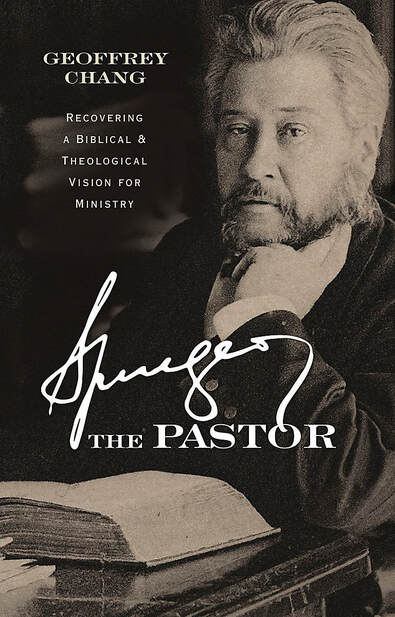 Spurgeon the Pastor by Geoff Chang
Spurgeon the Pastor by Geoff Chang
3 Reasons Why We Should Listen to Spurgeon Today:
1. Spurgeon pastored amid an active ministry. His 63 volumes of published sermons make it clear that the heart of Spurgeon’s ministry was preaching, and this kept him busy. From his earliest days at Waterbeach, he would regularly preach eight times a week (three sermons on Sunday and five nights a week). After a few years in London, the demand for his preaching was so great that he found himself preaching as much as twelve or thirteen times a week. But as busy as Spurgeon was, he was more than just a preacher. He gave oversight to at least sixty-six institutions that existed out of the Metropolitan Tabernacle, including two orphanages, the Pastors’ College, numerous Bible classes, Sunday schools, and more. We also can’t forget the incessant deadlines of his weekly sermon publications, monthly magazine, unending correspondence, and many book projects. But as important and fruitful as those ministries were, Spurgeon was more than just a ministry director and administrator. Spurgeon was a pastor. He took responsibility for a church and sought to care for his flock. Busy-ness was no excuse to neglect his pastoral responsibilities.
So, why should we listen to Spurgeon? For the church leader with thousands of responsibilities, we need Spurgeon to remind us of the importance of our calling as pastors and to encourage us to persevere in faithfulness.
2. Spurgeon pastored amid a revival. When Spurgeon first arrived in London, the congregation of the New Park Street Chapel had dwindled to a few dozen. Sitting in a cavernous building that seated over a thousand, Spurgeon may have thought he had plenty of room to expand. But in just a few months, the whole city was stirred at the news of the boy-preacher from the fens. The roads and bridges leading to Spurgeon’s chapel were blocked by traffic each Sunday. Before long, the congregation outgrew their space and needed to expand. During construction, Spurgeon rented large venues, like Exeter Hall and the Surrey Gardens Music Hall, to accommodate the growing crowds, but hundreds were still being turned away. And as the building expansion finished, the congregation once again outgrew their space.
The challenge of space vexed Spurgeon. But this wasn’t about drawing the largest crowd possible. Instead, this was Spurgeon’s recognition that he was the pastor of a church, not an itinerant preacher. At one point, he lamented how membership had exceeded the seating at the New Park Street Chapel by 300, which meant that if they were to observe the Lord’s Supper in their building, 300 members would not be able to participate. Not only that but with so many being converted, Spurgeon feared that he could not responsibly bring them into church membership and care for them properly. The only options he could think of was to either build a larger building or quit the pastorate altogether and become a traveling evangelist. But his congregation did not let him quit. They would approve the construction of a new building, seating well over 5,000. Even as church membership grew from 50 to 5,000, Spurgeon’s view of pastoral ministry remained the same.
Why should we listen to Spurgeon? For pastors of large churches who are tempted to compromise their ecclesiology, Spurgeon offers an example of faithfulness even amid rapid growth.
3. Spurgeon pastored amid numerous societal and theological challenges. As the most famous pastor of the English-speaking world, people wanted Spurgeon’s opinions on everything. Living in London during the Victorian era at the height of British imperialism, there were no shortage of societal and theological issues to discuss. From Darwinism to American slavery, from cholera outbreaks to the industrial revolution, from international wars to the temperance movement, from women’s suffrage to state religion, and much, much more, Spurgeon had plenty to distract him from his pastoral ministry. To be clear, Spurgeon commented on many of these issues through his magazine and public correspondence, sometimes at great cost to himself. Still, Spurgeon understood that he was not responsible for pastoring the entire English-speaking world. His responsibility lay with the members of the Metropolitan Tabernacle. Even as Spurgeon engaged prophetically in the world around him, he never lost sight that his responsibility was for the members of his local church.
Why should we listen to Spurgeon? Even as we face controversies in our day, Spurgeon provides a model for faithfully pastoring our congregations through those challenges.
Undoubtedly, Spurgeon was firmly situated in his Victorian context, and we should not try to mechanically transplant his practices into our context. However, what Spurgeon provides for us is an example of a pastor who faced all the challenges of pastoral ministry, and yet was firmly committed to pastoring his church based on biblical and theological convictions. In this, we can all learn from Spurgeon the pastor.
Excerpted from Spurgeon the Pastor by Geoff Chang. Copyright 2022, B&H Publishing.
1. Spurgeon pastored amid an active ministry. His 63 volumes of published sermons make it clear that the heart of Spurgeon’s ministry was preaching, and this kept him busy. From his earliest days at Waterbeach, he would regularly preach eight times a week (three sermons on Sunday and five nights a week). After a few years in London, the demand for his preaching was so great that he found himself preaching as much as twelve or thirteen times a week. But as busy as Spurgeon was, he was more than just a preacher. He gave oversight to at least sixty-six institutions that existed out of the Metropolitan Tabernacle, including two orphanages, the Pastors’ College, numerous Bible classes, Sunday schools, and more. We also can’t forget the incessant deadlines of his weekly sermon publications, monthly magazine, unending correspondence, and many book projects. But as important and fruitful as those ministries were, Spurgeon was more than just a ministry director and administrator. Spurgeon was a pastor. He took responsibility for a church and sought to care for his flock. Busy-ness was no excuse to neglect his pastoral responsibilities.
So, why should we listen to Spurgeon? For the church leader with thousands of responsibilities, we need Spurgeon to remind us of the importance of our calling as pastors and to encourage us to persevere in faithfulness.
2. Spurgeon pastored amid a revival. When Spurgeon first arrived in London, the congregation of the New Park Street Chapel had dwindled to a few dozen. Sitting in a cavernous building that seated over a thousand, Spurgeon may have thought he had plenty of room to expand. But in just a few months, the whole city was stirred at the news of the boy-preacher from the fens. The roads and bridges leading to Spurgeon’s chapel were blocked by traffic each Sunday. Before long, the congregation outgrew their space and needed to expand. During construction, Spurgeon rented large venues, like Exeter Hall and the Surrey Gardens Music Hall, to accommodate the growing crowds, but hundreds were still being turned away. And as the building expansion finished, the congregation once again outgrew their space.
The challenge of space vexed Spurgeon. But this wasn’t about drawing the largest crowd possible. Instead, this was Spurgeon’s recognition that he was the pastor of a church, not an itinerant preacher. At one point, he lamented how membership had exceeded the seating at the New Park Street Chapel by 300, which meant that if they were to observe the Lord’s Supper in their building, 300 members would not be able to participate. Not only that but with so many being converted, Spurgeon feared that he could not responsibly bring them into church membership and care for them properly. The only options he could think of was to either build a larger building or quit the pastorate altogether and become a traveling evangelist. But his congregation did not let him quit. They would approve the construction of a new building, seating well over 5,000. Even as church membership grew from 50 to 5,000, Spurgeon’s view of pastoral ministry remained the same.
Why should we listen to Spurgeon? For pastors of large churches who are tempted to compromise their ecclesiology, Spurgeon offers an example of faithfulness even amid rapid growth.
3. Spurgeon pastored amid numerous societal and theological challenges. As the most famous pastor of the English-speaking world, people wanted Spurgeon’s opinions on everything. Living in London during the Victorian era at the height of British imperialism, there were no shortage of societal and theological issues to discuss. From Darwinism to American slavery, from cholera outbreaks to the industrial revolution, from international wars to the temperance movement, from women’s suffrage to state religion, and much, much more, Spurgeon had plenty to distract him from his pastoral ministry. To be clear, Spurgeon commented on many of these issues through his magazine and public correspondence, sometimes at great cost to himself. Still, Spurgeon understood that he was not responsible for pastoring the entire English-speaking world. His responsibility lay with the members of the Metropolitan Tabernacle. Even as Spurgeon engaged prophetically in the world around him, he never lost sight that his responsibility was for the members of his local church.
Why should we listen to Spurgeon? Even as we face controversies in our day, Spurgeon provides a model for faithfully pastoring our congregations through those challenges.
Undoubtedly, Spurgeon was firmly situated in his Victorian context, and we should not try to mechanically transplant his practices into our context. However, what Spurgeon provides for us is an example of a pastor who faced all the challenges of pastoral ministry, and yet was firmly committed to pastoring his church based on biblical and theological convictions. In this, we can all learn from Spurgeon the pastor.
Excerpted from Spurgeon the Pastor by Geoff Chang. Copyright 2022, B&H Publishing.
July 16, 2021: Southern Equip: Brother Pastor, Take Up and Read
Read books that will set your heart ablaze for God. J. I. Packer’s Knowing God, J. C. Ryle’s Holiness, John Bunyan’s Pilgrim’s Progress, Paul Tripp’s New Morning Mercies, R. C. Sproul’s Holiness of God, Spurgeon’s Morning and Evening, even Calvin’s Institutes, sermons by Martyn Lloyd-Jones, and selections from Bavinck and Turretin have helped stoke the fire in my bones for Christ through the years.
Read books that will set your heart ablaze for God. J. I. Packer’s Knowing God, J. C. Ryle’s Holiness, John Bunyan’s Pilgrim’s Progress, Paul Tripp’s New Morning Mercies, R. C. Sproul’s Holiness of God, Spurgeon’s Morning and Evening, even Calvin’s Institutes, sermons by Martyn Lloyd-Jones, and selections from Bavinck and Turretin have helped stoke the fire in my bones for Christ through the years.
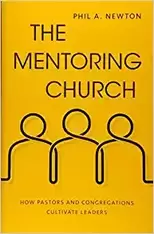
“Few pastors can compare to Charles Haddon Spurgeon (1834-1892), nineteenth-century Baptist pastor at London’s Metropolitan Tabernacle. If one combined John Chrysostom’s oration, Gregory the Great’s pastoral application, Martin Luther’s prolific writing, John Calvin’s pastoral training, John Knox’s pulpit boldness, George Whitefield’s evangelistic gift, and John Wesley’s ability to organize new congregations, he might better understand Spurgeon’s gifts and abilities. Despite years of physical and emotional suffering, he sought to love each day to the fullest – feeding upon Jesus Christ as revealed in the Scriptures while seeking the lost through proclaiming Christ crucified and resurrected” (Phil Newton; The Mentoring Church, pg. 104)
 Charles Spurgeon
Charles Spurgeon
Joshua 1: 5: No one will be able to stand up against you all the days of your life. As I was with Moses, so I will be with you; I will never leave you nor forsake you.
All scripture is the Word of God and Joshua was an example of a godly man who both believed God’s word and acted upon it. Joshua knew the value of hearing God’s Word and meditating upon it. He knew that neglecting the Word of the Lord was a recipe for disaster and like Mary of Bethany he learned the one thing that was needful – to listen to the voice of the Lord and to meditate upon all that He has said day and night – and like them we too need to ponder it in our hearts, and talk about it to other believers. Like Joshua we would be wise to take heed to God’s word – to recite His word in our heart and to keep the truth of His Word forever on our out lips and in our hearts – and to observe all that God has written to us in our lives – for then we will prosper and succeed in whatsoever we do – to our benefit and to His glory. Sometimes we misunderstand what it means, “to succeed” or “to prosper”, which has given rise to a prosperity teaching, which places the emphasis temporal, worldly prosperity rather than eternal spiritual wealth. God may choose to bestow worldly wealth on His children or He may permit the alternative – but the good’s and chattel of this world are passing away, and like Paul we need to be content in all things… but what is important is to know the Word of God – to trust the Word of God and to apply the Word of God in Knowing Jesus every circumstance of life – knowing that to do so will lead to a success in the Christian life – for all things work together for good to those that love the Lord and trust His Word. We should read, mark, learn and inwardly digest the Word of the Lord. We should study God’s Book of instruction – particularly those passages that relate specifically to the Church – and we should continually feed on His Word in our hearts by faith with thanksgiving. We should meditate on His word, memorize His Word, trust His Word and love His Word – And we should be sure to obey His Word and apply His Word in our daily lives – for in so doing we will certainly prosper and succeed in all we do – to His praise and glory.
This word to Joshua is often quoted; it is the basis of that New Testament word “He hath said, I will never leave thee, nor forsake thee.”
Beloved, a life of warfare is before us, but the Lord of Hosts is with us. Are we called to lead a great but fickle people? This promise guarantees us all the wisdom and prudence that we shall need. Have we to contend with cunning and powerful enemies? Here is strength and valor, prowess and victory. Have we a vast heritage to win? By this sign we shall achieve our purpose; the Lord Himself is with us.
It would be woe to us indeed if Jehovah could fail us; but, as this can never be, the winds of disquietude are laid to sleep in the caverns of divine faithfulness. On no one occasion will the Lord desert us. Happen what may, He will be at our side. Friends drop from us, their help is but an April shower; but God is faithful, Jesus is the same forever, and the Holy Spirit abideth in us.
Come, my heart, be calm and hopeful today. Clouds may gather, but the Lord can blow them away. Since God will not fail me, my faith shall not fail; and as He will not forsake me, neither will I forsake Him. Oh, for a restful faith! --Charles Spurgeon
All scripture is the Word of God and Joshua was an example of a godly man who both believed God’s word and acted upon it. Joshua knew the value of hearing God’s Word and meditating upon it. He knew that neglecting the Word of the Lord was a recipe for disaster and like Mary of Bethany he learned the one thing that was needful – to listen to the voice of the Lord and to meditate upon all that He has said day and night – and like them we too need to ponder it in our hearts, and talk about it to other believers. Like Joshua we would be wise to take heed to God’s word – to recite His word in our heart and to keep the truth of His Word forever on our out lips and in our hearts – and to observe all that God has written to us in our lives – for then we will prosper and succeed in whatsoever we do – to our benefit and to His glory. Sometimes we misunderstand what it means, “to succeed” or “to prosper”, which has given rise to a prosperity teaching, which places the emphasis temporal, worldly prosperity rather than eternal spiritual wealth. God may choose to bestow worldly wealth on His children or He may permit the alternative – but the good’s and chattel of this world are passing away, and like Paul we need to be content in all things… but what is important is to know the Word of God – to trust the Word of God and to apply the Word of God in Knowing Jesus every circumstance of life – knowing that to do so will lead to a success in the Christian life – for all things work together for good to those that love the Lord and trust His Word. We should read, mark, learn and inwardly digest the Word of the Lord. We should study God’s Book of instruction – particularly those passages that relate specifically to the Church – and we should continually feed on His Word in our hearts by faith with thanksgiving. We should meditate on His word, memorize His Word, trust His Word and love His Word – And we should be sure to obey His Word and apply His Word in our daily lives – for in so doing we will certainly prosper and succeed in all we do – to His praise and glory.
This word to Joshua is often quoted; it is the basis of that New Testament word “He hath said, I will never leave thee, nor forsake thee.”
Beloved, a life of warfare is before us, but the Lord of Hosts is with us. Are we called to lead a great but fickle people? This promise guarantees us all the wisdom and prudence that we shall need. Have we to contend with cunning and powerful enemies? Here is strength and valor, prowess and victory. Have we a vast heritage to win? By this sign we shall achieve our purpose; the Lord Himself is with us.
It would be woe to us indeed if Jehovah could fail us; but, as this can never be, the winds of disquietude are laid to sleep in the caverns of divine faithfulness. On no one occasion will the Lord desert us. Happen what may, He will be at our side. Friends drop from us, their help is but an April shower; but God is faithful, Jesus is the same forever, and the Holy Spirit abideth in us.
Come, my heart, be calm and hopeful today. Clouds may gather, but the Lord can blow them away. Since God will not fail me, my faith shall not fail; and as He will not forsake me, neither will I forsake Him. Oh, for a restful faith! --Charles Spurgeon
 Charles Spurgeon
Charles Spurgeon
“The weapons of our warfare are not carnal yet the spiritual weapons which can be wielded by the Christian minister, and indeed by every Christian man, are not to be despised, for while not fleshly, they are mighty through God. God is in them; God is with those who use them. The sword of the Spirit, which is the word of God, the arrows of truth which pierce the consciences of men, the weapon of all prayer, the influence of the Holy Ghost— that divine power— such weapons as these are by God’s power made mighty to the overthrow of spiritual principalities and powers. Truth and holiness are the appointed engines for the pulling down of the castles of evil. Blessed is he who in every conflict for God takes heed to use none other weapons than those which the Lord hath hung up in the tower of David, builded for an armoury, wherein do hang a thousand bucklers, all shields of mighty men. Those only can fight the Lord’s battles successfully who come to him to be armed for the fight, and reject all fleshly force. The spiritual shall be victorious, but others must fail." --Charles Spurgeon
 Charles Spurgeon
Charles Spurgeon
"We venture to assert, that if there be any day in the year, of which we may be pretty sure that it was not the day on which the Saviour was born, it is the twenty-fifth of December. Nevertheless since, the current of men's thoughts is led this way just now, and I see no evil in the current itself, I shall launch the bark of our discourse upon that stream, and make use of the fact, which I shall neither justify nor condemn, by endeavoring to lead your thoughts in the same direction. Since it is lawful, and even laudable, to meditate upon the incarnation of the Lord upon any day in the year, it cannot be in the power of other men's superstitions to render such a meditation improper for to-day. Regarding not the day, let us, nevertheless, give God thanks for the gift of his dear son." --Charles Spurgeon
 Charles Spurgeon
Charles Spurgeon
If we would be supported by a type, our Lord takes the name of "the Second Adam," and the first Adam was a gardener. Moses tells us that the Lord God placed the man in the garden of Eden to dress it and to keep it. Man in his best estate was not to live in this world in a paradise of indolent luxury, but in a garden of recompensed toil. Behold, the church is Christ's Eden, watered by the river of life, and so fertilized that all manner of fruits are brought forth unto God; and he, our second Adam, walks in this spiritual Eden to dress it and to keep it; and so by a type we see that we are right in "supposing him to be the gardener." Thus also Solomon thought of him when he described the royal Bridegroom as going down with his spouse to the garden when the flowers appeared on the earth and the fig tree had put forth her green figs; he went out with his beloved for the reservation of the gardens, saying, "Take us the foxes, the little foxes, that spoil the vines: for our vines have tender grapes." Neither nature, nor Scripture, nor type, nor song forbids us to think of our adorable Lord Jesus as one that careth for the flowers and fruits of his church. --Charles Spurgeon
Jan 19, 2022: The Lab: Spurgeon’s Hard Life and Hopeful Preaching
“The Prince of Preachers” is the title bestowed upon the great English expositor, Charles Haddon Spurgeon. As Spurgeon’s weekly sermons were being transcribed and published throughout the world, the American novelist, Mark Twain, published The Prince and the Pauper in 1862.
“The Prince of Preachers” is the title bestowed upon the great English expositor, Charles Haddon Spurgeon. As Spurgeon’s weekly sermons were being transcribed and published throughout the world, the American novelist, Mark Twain, published The Prince and the Pauper in 1862.
 Charles Spurgeon
Charles Spurgeon
“An evil is in the professed camp of the Lord, so gross in its impudence, that the most shortsighted can hardly fail to notice it during the past few years. It has developed at an abnormal rate, even for evil. It has worked like leaven until the whole lump ferments. The devil has seldom done a cleverer thing than hinting to the church that part of their mission is to provide entertainment for the people, with a view to winning them.
From speaking out as the Puritans did, the church has gradually toned down her testimony, then winked at and excused the frivolities of the day. Then she tolerated them in her borders. Now she has adopted them under the plea of reaching the masses.
My first contention is that providing amusement for the people is nowhere spoken of in the Scriptures as a function of the church. If it is a Christian work, why did not Christ speak of it? “Go ye into all the world and preach the gospel to every creature” (Mark 16:15). That is clear enough. So it would have been if He had added, “and provide amusement for those who do not relish the gospel.” No such words, however, are to be found. It did not seem to occur to him.
Then again, “He gave some, apostles; and some, prophets; and some evangelists; and some pastors and teachers .., for the work of the ministry” (Eph. 4:11-12). Where do entertainers come in? The Holy Spirit is silent concerning them. Were the prophets persecuted because they amused the people or because they refused? The concert has no martyr roll.
Again, providing amusement is in direct antagonism to the teaching and life of Christ and all his apostles. What was the attitude of the church to the world? Ye are the salt” (Matt. 5:13), not the sugar candy—something the world will spit out not swallow. Short and sharp was the utterance, “Let the dead bury their dead” (Matt. 8:22) He was in awful earnestness.
Had Christ introduced more of the bright and pleasant elements into his mission, he would have been more popular when they went back, because of the searching nature of His teaching. I do not hear him say, “Run after these people Peter and tell them we will have a different style of service tomorrow, something short and attractive with little preaching. We will have a pleasant evening for the people. Tell them they will be sure to enjoy it. Be quick Peter, we must get the people somehow.” Jesus pitied sinners, sighed and wept over them, but never sought to amuse them.
In vain will the Epistles be searched to find any trace of this gospel of amusement! Their message is, “Come out, keep out, keep clean out!” Anything approaching fooling is conspicuous by its absence. They had boundless confidence in the gospel and employed no other weapon.
After Peter and John were locked up for preaching, the church had a prayer meeting but they did not pray, “Lord grant unto thy servants that by a wise and discriminating use of innocent recreation we may show these people how happy we are.” If they ceased not from preaching Christ, they had not time for arranging entertainments. Scattered by persecution, they went everywhere preaching the gospel. They turned the world upside down (Acts 17:6). That is the only difference! Lord, clear the church of all the rot and rubbish the devil has imposed on her, and bring us back to apostolic methods.
Lastly, the mission of amusement fails to effect the end desired. It works havoc among young converts. Let the careless and scoffers, who thank God because the church met them halfway, speak and testify. Let the heavy laden who found peace through the concert not keep silent! Let the drunkard to whom the dramatic entertainment has been God’s link in the chain of the conversion, stand up! There are none to answer. The mission of amusement produces no converts. The need of the hour for today’s ministry is believing scholarship joined with earnest spirituality, the one springing from the other as fruit from the root. The need is biblical doctrine, so understood and felt, that it sets men on fire.” --Charles Spurgeon
From speaking out as the Puritans did, the church has gradually toned down her testimony, then winked at and excused the frivolities of the day. Then she tolerated them in her borders. Now she has adopted them under the plea of reaching the masses.
My first contention is that providing amusement for the people is nowhere spoken of in the Scriptures as a function of the church. If it is a Christian work, why did not Christ speak of it? “Go ye into all the world and preach the gospel to every creature” (Mark 16:15). That is clear enough. So it would have been if He had added, “and provide amusement for those who do not relish the gospel.” No such words, however, are to be found. It did not seem to occur to him.
Then again, “He gave some, apostles; and some, prophets; and some evangelists; and some pastors and teachers .., for the work of the ministry” (Eph. 4:11-12). Where do entertainers come in? The Holy Spirit is silent concerning them. Were the prophets persecuted because they amused the people or because they refused? The concert has no martyr roll.
Again, providing amusement is in direct antagonism to the teaching and life of Christ and all his apostles. What was the attitude of the church to the world? Ye are the salt” (Matt. 5:13), not the sugar candy—something the world will spit out not swallow. Short and sharp was the utterance, “Let the dead bury their dead” (Matt. 8:22) He was in awful earnestness.
Had Christ introduced more of the bright and pleasant elements into his mission, he would have been more popular when they went back, because of the searching nature of His teaching. I do not hear him say, “Run after these people Peter and tell them we will have a different style of service tomorrow, something short and attractive with little preaching. We will have a pleasant evening for the people. Tell them they will be sure to enjoy it. Be quick Peter, we must get the people somehow.” Jesus pitied sinners, sighed and wept over them, but never sought to amuse them.
In vain will the Epistles be searched to find any trace of this gospel of amusement! Their message is, “Come out, keep out, keep clean out!” Anything approaching fooling is conspicuous by its absence. They had boundless confidence in the gospel and employed no other weapon.
After Peter and John were locked up for preaching, the church had a prayer meeting but they did not pray, “Lord grant unto thy servants that by a wise and discriminating use of innocent recreation we may show these people how happy we are.” If they ceased not from preaching Christ, they had not time for arranging entertainments. Scattered by persecution, they went everywhere preaching the gospel. They turned the world upside down (Acts 17:6). That is the only difference! Lord, clear the church of all the rot and rubbish the devil has imposed on her, and bring us back to apostolic methods.
Lastly, the mission of amusement fails to effect the end desired. It works havoc among young converts. Let the careless and scoffers, who thank God because the church met them halfway, speak and testify. Let the heavy laden who found peace through the concert not keep silent! Let the drunkard to whom the dramatic entertainment has been God’s link in the chain of the conversion, stand up! There are none to answer. The mission of amusement produces no converts. The need of the hour for today’s ministry is believing scholarship joined with earnest spirituality, the one springing from the other as fruit from the root. The need is biblical doctrine, so understood and felt, that it sets men on fire.” --Charles Spurgeon
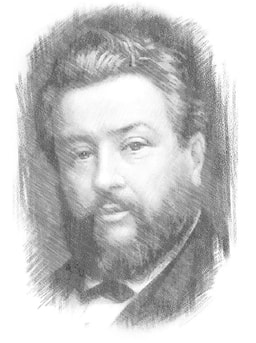 Charles Spurgeon
Charles Spurgeon
To suppose that the Lord Jesus has only half saved men, and that there is needed some work or feeling of their own to finish His work, is wicked. What is there of ours that could be added to His blood and righteousness? “All our righteousnesses are as filthy rags” (Isa 64:6). Can these be patched on to the costly fabric of His divine righteousness? Rags and fine white linen! Our dross and His pure gold! It is an insult to the Saviour to dream of such a thing. We have sinned enough, without adding this to all our other offences.
Even if we had any righteousness in which we could boast; if our fig leaves were broader than usual, and were not so utterly fading, it would be wisdom to put them away, and accept that righteousness which must be far more pleasing to God than anything of our own. The Lord must see more that is acceptable in His Son than in the best of us. The best of us! The words seem satirical, though they were not so intended. What best is there about any of us? “There is none that doeth good; no, not one” (Rom 3:12). I who write these lines, would most freely confess that I have not a thread of goodness of my own. I could not make up so much as a rag, or a piece of a rag. I am utterly destitute. But if I had the fairest suit of good works which even pride can imagine, I would tear it up that I might put on nothing but the garments of salvation, which are freely given by the Lord Jesus, out of the heavenly wardrobe of His own merits....
The reason why we may hope for forgiveness of sin, and life eternal, by faith in the Lord Jesus, is that God has so appointed. He has pledged Himself in the gospel to save all who truly trust in the Lord Jesus, and He will never run back from His promise. He is so well pleased with His only- begotten Son, that He takes pleasure in all who lay hold upon Him as their one and only hope. The great God Himself has taken hold on him who has taken hold on His Son. He works salvation for all who look for that salvation to the once- slain Redeemer. For the honour of His Son, He will not suffer the man who trusts in Him to be ashamed. “He that believeth on the Son hath everlasting life” (Joh 3:36); for the ever- living God has taken him unto Himself, and has given to him to be a partaker of His life. If Jesus only be your trust, you need not fear but what you shall effectually be saved, both now and in the day of His appearing.
--Charles Spurgeon, Around the Wicket Gate
Even if we had any righteousness in which we could boast; if our fig leaves were broader than usual, and were not so utterly fading, it would be wisdom to put them away, and accept that righteousness which must be far more pleasing to God than anything of our own. The Lord must see more that is acceptable in His Son than in the best of us. The best of us! The words seem satirical, though they were not so intended. What best is there about any of us? “There is none that doeth good; no, not one” (Rom 3:12). I who write these lines, would most freely confess that I have not a thread of goodness of my own. I could not make up so much as a rag, or a piece of a rag. I am utterly destitute. But if I had the fairest suit of good works which even pride can imagine, I would tear it up that I might put on nothing but the garments of salvation, which are freely given by the Lord Jesus, out of the heavenly wardrobe of His own merits....
The reason why we may hope for forgiveness of sin, and life eternal, by faith in the Lord Jesus, is that God has so appointed. He has pledged Himself in the gospel to save all who truly trust in the Lord Jesus, and He will never run back from His promise. He is so well pleased with His only- begotten Son, that He takes pleasure in all who lay hold upon Him as their one and only hope. The great God Himself has taken hold on him who has taken hold on His Son. He works salvation for all who look for that salvation to the once- slain Redeemer. For the honour of His Son, He will not suffer the man who trusts in Him to be ashamed. “He that believeth on the Son hath everlasting life” (Joh 3:36); for the ever- living God has taken him unto Himself, and has given to him to be a partaker of His life. If Jesus only be your trust, you need not fear but what you shall effectually be saved, both now and in the day of His appearing.
--Charles Spurgeon, Around the Wicket Gate
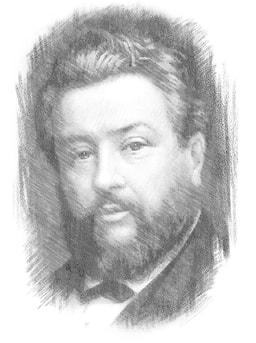 Charles Spurgeon
Charles Spurgeon
It is a great thing to have as much said in our commendation as was said concerning the church at Ephesus. Just read what "Jesus Christ, who is the faithful witness," said of them—"I know thy works, and thy labour, and thy patience, and how thou canst not bear them which are evil: and thou hast tried them which say they are apostles, and are not, and hast found them liars: and hast borne, and hast patience, and for my name's sake hast laboured, and hast not fainted." Oh, my dear brothers and sisters, we may feel devoutly thankful if we can humbly, but honestly say, that this commendation applies to us. Happy the man whose works are known and accepted of Christ. He is no idle Christian, he has practical godliness; he seeks by works of piety to obey God's whole law, by works of charity to manifest his love to the brotherhood, and by works of devotion to show his attachment to the cause of his Master. "I know thy works." Alas! some of you cannot get so far as that. Jesus Christ himself can bear no witness to your works, for you have not done any. You are Christians by profession, but you are not Christians as to your practice. I say again, happy is that man to whom Christ can say, "I know thy works." It is a commendation worth a world to have as much as that said of us. But further, Christ said, "and thy labour." This is more still. Many Christians have works, but only few Christians have labour. There were many preachers in Whitfield's day that had works, but Whitfield had labour. He toiled and travailed for souls. He was "in labours more abundant." Many were they in the apostle's days who did works for Christ; but pre-eminently the apostle Paul did labour for souls. It is not work merely, it is anxious work; it is casting forth the whole strength, and exercising all the energies for Christ. Could the Lord Jesus say as much as that of you—"I know thy labour?" No. He might say, "I know thy loitering; I know thy laziness; I know thy shirking of the work; I know thy boasting of what little thou dost; I know thine ambition to be thought something of, when thou art nothing." But ah! friends, it is more than most of us dare to hope that Christ could say, "I know thy labour."
But further, Christ says, "I know thy patience." Now there be some that labour, and they do it well. But what does hinder them? They only labour for a little season, and then they cease to work and begin to faint. But this church had laboured on for many years; it had thrown out all its energies—not in some spasmodic effort, but in a continual strain and unabated zeal for the glory of God. "I know thy patience." I say again, beloved, I tremble to think how few out of this congregation could win such praise as this. "I know thy works, and thy labour, and thy patience, and how thou canst not bear them which are evil." The thorough hatred which the church had of evil doctrine, of evil practice, and its corresponding intense love for pure truth and pure practice—in that I trust some of us can bear a part. "And thou hast tried them which say they are apostles, and are not, and hast found them liars." Here, too, I think some of us may hope to be clear. I know the difference between truth and error. Arminianism will never go down with us; the doctrine of men will not suit our taste. The husks, the bran, and the chaff, are not things that we can feed upon. And when we listen to those who preach another gospel, a holy anger burns within us, for we love the truth as it is in Jesus; and nothing but that will satisfy us. "And hast borne, and hast patience, and for my name's sake hast laboured, and hast not fainted." They had borne persecutions, difficulties, hardships, embarrassments, and discouragements, yet had they never flagged, but always continued faithful. Who among us here present could lay claim to so much praise as this? What Sunday-school teacher have I here who could say, "I have laboured, and I have borne, and have had patience, and have not fainted." Ah, dear friends, if you can say it, it is more than I can. Often have I been ready to faint in the Master's work; and though I trust I have not been tired of it, yet there has sometimes been a longing to get from the work to the reward, and to go from the service of God, before I had fulfilled, as a hireling, my day. I am afraid we have not enough of patience, enough of labour, and enough of good works, to get even as much as this said of us. --Charles Spurgeon
But further, Christ says, "I know thy patience." Now there be some that labour, and they do it well. But what does hinder them? They only labour for a little season, and then they cease to work and begin to faint. But this church had laboured on for many years; it had thrown out all its energies—not in some spasmodic effort, but in a continual strain and unabated zeal for the glory of God. "I know thy patience." I say again, beloved, I tremble to think how few out of this congregation could win such praise as this. "I know thy works, and thy labour, and thy patience, and how thou canst not bear them which are evil." The thorough hatred which the church had of evil doctrine, of evil practice, and its corresponding intense love for pure truth and pure practice—in that I trust some of us can bear a part. "And thou hast tried them which say they are apostles, and are not, and hast found them liars." Here, too, I think some of us may hope to be clear. I know the difference between truth and error. Arminianism will never go down with us; the doctrine of men will not suit our taste. The husks, the bran, and the chaff, are not things that we can feed upon. And when we listen to those who preach another gospel, a holy anger burns within us, for we love the truth as it is in Jesus; and nothing but that will satisfy us. "And hast borne, and hast patience, and for my name's sake hast laboured, and hast not fainted." They had borne persecutions, difficulties, hardships, embarrassments, and discouragements, yet had they never flagged, but always continued faithful. Who among us here present could lay claim to so much praise as this? What Sunday-school teacher have I here who could say, "I have laboured, and I have borne, and have had patience, and have not fainted." Ah, dear friends, if you can say it, it is more than I can. Often have I been ready to faint in the Master's work; and though I trust I have not been tired of it, yet there has sometimes been a longing to get from the work to the reward, and to go from the service of God, before I had fulfilled, as a hireling, my day. I am afraid we have not enough of patience, enough of labour, and enough of good works, to get even as much as this said of us. --Charles Spurgeon
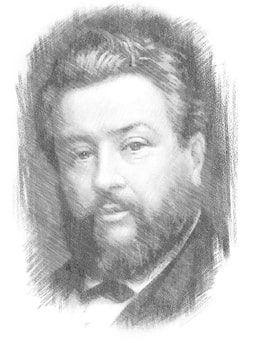 Charles Spurgeon
Charles Spurgeon
This is a message to the angel of the church at Philadelphia, and it is full of instruction to churches and ministers at this present time "He that hath an ear, let him hear what the Spirit saith unto the churches." The Philadelphian church was not great, but it was good: it was not powerful, but it was faithful. The Spirit says, "Thou hast a little strength." Every band of believers has some strength: weak as we are in ourselves, the very fact of our possessing faith proves that we have a portion of strength. Still that strength is a matter of degrees and certain churches have a little strength—but only a little. I suppose that the Philadelphian church had but little strength in the following respects:—the number of its members would be small, and it had therefore but little strength for undertaking any extensive enterprize which would call for numerous bands of workers. The brethren needed all their strength concentrated on their home work, for they were few, and the miss of one or two from home evangelization and edification would be greatly felt. A church may have a very short muster-roll, and yet it may be very dear to God, who thinks more of quality than of quantity, more of obedience than of numbers. They had also little strength in the direction of talent. They were not like that famous church at Corinth, where everybody could teach everybody, but where nobody cared to learn of any one. They had but small ability to speak with tongues, or work miracles, or teach the word; but they adhered faithfully to what they had been taught by the apostles of the Lord: they were not brilliant, but they were sound. Churches with few men of learning or eloquence in them may yet be greatly approved of the Lord, who cares more for grace than learning, more for faith than talent. In all probability they were, like most of the churches of that day, possessed of very little pecuniary strength. They could do but little where money would be required. They were a company of poor people with no man of means among them; and there are many such churches that are peculiarly precious to the heart of God, who cares nothing for gold, and everything for sincerity. Possibly they were little, too, in those things which go side by side with grace: I mean in knowledge, and in power to utter what they knew. This was a pity; but as it was their misfortune and not their fault, they were not blamed for it. The Lord does not blame us for having little strength, but for having little love, little faith, little zeal, little consecration. --Charles Spurgeon
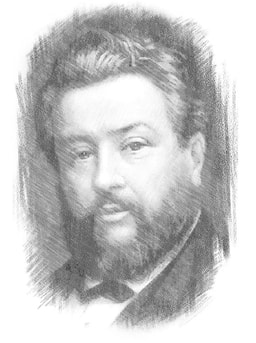 Charles Spurgeon
Charles Spurgeon
By the words “to save” we understand the whole of the great work of salvation, from the first holy desire onward to complete sanctification. The words are multum in parro: indeed, here is all mercy in one word. Christ is not only “mighty to save” those who repent, but He is able to make men repent. He will carry those to heaven who believe; but He is, moreover, mighty to give men new hearts and to work faith in them. He is mighty to make the man who hates holiness love it, and to constrain the despiser of His name to bend the knee before Him.
Nay, this is not all the meaning, for the divine power is equally seen in the after-work. The life of a believer is a series of miracles wrought by “the Mighty God.” The bush burns, but is not consumed. He is mighty to keep His people holy after He has made them so, and to preserve them in his fear and love until he consummates their spiritual existence in heaven. Christ’s might doth not lie in making a believer and then leaving him to shift for himself; but He who begins the good work carries it on; He who imparts the first germ of life in the dead soul, prolongs the divine existence, and strengthens it until it bursts asunder every bond of sin, and the soul leaps from earth, perfected in glory.
Believer, here is encouragement. Art thou praying for some beloved one? Oh, give not up thy prayers, for Christ is “mighty to save.” You are powerless to reclaim the rebel, but your Lord is Almighty. Lay hold on that mighty arm, and rouse it to put forth its strength. Does your own case trouble you? Fear not, for His strength is sufficient for you. Whether to begin with others, or to carry on the work in you, Jesus is “mighty to save;” the best proof of which lies in the fact that He has saved you.
What a thousand mercies that you have not found Him mighty to destroy! –Charles Spurgeon
Nay, this is not all the meaning, for the divine power is equally seen in the after-work. The life of a believer is a series of miracles wrought by “the Mighty God.” The bush burns, but is not consumed. He is mighty to keep His people holy after He has made them so, and to preserve them in his fear and love until he consummates their spiritual existence in heaven. Christ’s might doth not lie in making a believer and then leaving him to shift for himself; but He who begins the good work carries it on; He who imparts the first germ of life in the dead soul, prolongs the divine existence, and strengthens it until it bursts asunder every bond of sin, and the soul leaps from earth, perfected in glory.
Believer, here is encouragement. Art thou praying for some beloved one? Oh, give not up thy prayers, for Christ is “mighty to save.” You are powerless to reclaim the rebel, but your Lord is Almighty. Lay hold on that mighty arm, and rouse it to put forth its strength. Does your own case trouble you? Fear not, for His strength is sufficient for you. Whether to begin with others, or to carry on the work in you, Jesus is “mighty to save;” the best proof of which lies in the fact that He has saved you.
What a thousand mercies that you have not found Him mighty to destroy! –Charles Spurgeon
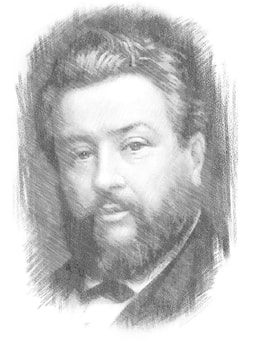 Charles Spurgeon
Charles Spurgeon
First, by His own sovereign election. He chose them, and set His love upon them. He chose them altogether apart from any goodness in them at the time, or any goodness which He foresaw in them. He had mercy on whom He would have mercy, and ordained a chosen company unto eternal life. Therefore, are they His by His unconstrained election.
They are not only His by choice--but by purchase. He has bought and paid for them to the utmost farthing--hence there can be no dispute about His title to them. The Lord's portion has been fully redeemed, not with corruptible things, as with silver and gold--but with the precious blood of the Lord Jesus Christ! See the blood-mark upon all the elect, invisible to human eye--but known to Christ, for "the Lord knows those who are His!" He forgets none of those whom He has redeemed! He counts the sheep for whom He laid down His life, and well remembers the people for whom He gave Himself.
They are also His by conquest. What a battle He had in us--before we would be won! How long He laid siege to our hearts! How often He sent us terms of surrender! But we barred our gates, and fortified our walls against Him. Do we not remember that glorious hour--when He conquered our hearts? When He placed His cross against the wall, and scaled our ramparts, planting the blood-red flag of His omnipotent mercy on our strongholds? Yes, we are, indeed--the conquered captives of His omnipotent love! --Charles Spurgeon
They are not only His by choice--but by purchase. He has bought and paid for them to the utmost farthing--hence there can be no dispute about His title to them. The Lord's portion has been fully redeemed, not with corruptible things, as with silver and gold--but with the precious blood of the Lord Jesus Christ! See the blood-mark upon all the elect, invisible to human eye--but known to Christ, for "the Lord knows those who are His!" He forgets none of those whom He has redeemed! He counts the sheep for whom He laid down His life, and well remembers the people for whom He gave Himself.
They are also His by conquest. What a battle He had in us--before we would be won! How long He laid siege to our hearts! How often He sent us terms of surrender! But we barred our gates, and fortified our walls against Him. Do we not remember that glorious hour--when He conquered our hearts? When He placed His cross against the wall, and scaled our ramparts, planting the blood-red flag of His omnipotent mercy on our strongholds? Yes, we are, indeed--the conquered captives of His omnipotent love! --Charles Spurgeon
 Charles Spurgeon
Charles Spurgeon
" A backslider, if there be a spark of life left in him will groan after restoration. In this renewal the same exercise of grace is required as at our conversion. We needed repentance then; we certainly need it now. We wanted faith that we might come to Christ at first; only the like grace can bring us to Jesus now. We wanted a word from the Most High, a word from the lip of the loving One, to end our fears then; we shall soon discover, when under a sense of present sin, that we need it now. No man can be renewed without as real and true a manifestation of the Holy Spirit’s energy as he felt at first, because the work is as great, and flesh and blood are as much in the way now as ever they were. Let thy personal weakness, O Christian, be an argument to make thee pray earnestly to thy God for help. Remember, David when he felt himself to be powerless, did not fold his arms or close his lips, but he hastened to the mercy-seat with “renew a right spirit within me.” Let not the doctrine that you, unaided, can do nothing, make you sleep; but let it be a goad in your side to drive you with an awful earnestness to Israel’s strong Helper. O that you may have grace to plead with God, as though you pleaded for your very life–“Lord, renew a right spirit within me.” He who sincerely prays to God to do this, will prove his honesty by using the means through which God works. Be much in prayer; live much upon the Word of God; kill the lusts which have driven your Lord from you; be careful to watch over the future uprisings of sin. The Lord has his own appointed ways; sit by the wayside and you will be ready when he passes by. Continue in all those blessed ordinances which will foster and nourish your dying graces; and, knowing that all the power must proceed from him, cease not to cry, “Renew a right spirit within me.” --“Renew a Right Spirit Within Me” by C. H. Spurgeon
 Charles Spurgeon
Charles Spurgeon
“Besides, sinner, you are getting old now. Those grey hairs tell a tale of years that have passed. Your youth fled long ago, and your early manhood is now over – God knoweth how you have spent it; but you are here to-night, like an old, barren tree, almost ready for the everlasting burning unless sovereign grace shall save you even now; but I am here to tell you that ‘yet there is room'”.
- Charles H. Spurgeon, from Twelve Sermons on Repentance, p. 73.
“Besides, sinner, you are getting old now. Those grey hairs tell a tale of years that have passed. Your youth fled long ago, and your early manhood is now over – God knoweth how you have spent it; but you are here to-night, like an old, barren tree, almost ready for the everlasting burning unless sovereign grace shall save you even now; but I am here to tell you that ‘yet there is room'”.
- Charles H. Spurgeon, from Twelve Sermons on Repentance, p. 73.
 Charles Spurgeon
Charles Spurgeon
"How remarkable the times repeat themselves. When the same evils come, we must apply to them the same remedies. When a disease appears that has done deadly mischief in past times, physicians inquire for medicines that on a former occasion curbed that enemy. We are bound to do the same in spiritual matters. We must see what Paul did in his day when the malaria of false doctrine is in the air… Let us not talk of inventing wise measures for the for the present distress in the spiritual world, but let us use the great remedy that was so effectual in Paul’s day". --Charles Spurgeon
 Charles Spurgeon
Charles Spurgeon
“If any minister can be satisfied without conversions, he shall have no conversions. God will not force usefulness on any man. It is only when our heart breaks to see men saved, that we shall be likely to see sinners’ hearts broken. The secret of success lies in all-consuming zeal, all-subduing travail for souls. Read the sermons of Wesley and of Whitfield, and what is there in them? It is no severe criticism to say that they are scarcely worthy to have survived. And yet those sermons wrought marvels. . . . In order to understand such preaching, you need to see and hear the man, you want his tearful eye, his glowing countenance, his pleading tone, his bursting heart. I have heard of a great preacher who objected to having his sermons printed, ‘Because,’ said he, ‘you cannot print me.’ That observation is very much to the point. A soul-winner throws himself into what he says. As I have sometimes said, we must ram ourselves into our cannons, we must fire ourselves at our hearers, and when we do this, then, by God’s grace, their hearts are often carried by storm.”
--C. H. Spurgeon, “Travailing for Souls,” 3 September 1871.
--C. H. Spurgeon, “Travailing for Souls,” 3 September 1871.
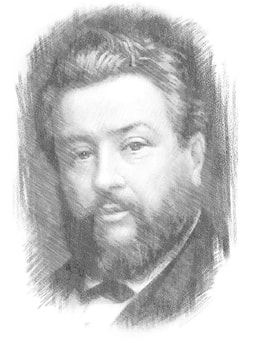 Charles Spurgeon
Charles Spurgeon
“THE Lord turned the captivity of Job.” So, then, our longest sorrows have a close, and there is a bottom to the profoundest depths of our misery. Our winters shall not frown for ever; summer shall soon smile. The tide shall not eternally ebb out; the floods retrace their march. The night shall not hang its darkness for ever over our souls; the sun shall yet arise with healing beneath his wings. — “The Lord turned again the captivity of Job.” Our sorrows shall have an end when God has gotten his end in them. The ends in the case of Job were these, that Satan might be defeated, foiled with his own weapons, blasted in his hopes when he had everything his own way. God, at Satan’s challenge, had stretched forth his hand and touched Job in his bone and in his flesh, and yet the tempter could not prevail against him, but received his rebuff in those conquering words, “Though he slay me, yet will I trust in him.” When Satan is defeated, then shall the battle cease. The Lord aimed also at the trial of Job’s faith. Many weights were hung upon this palm tree, but it still grew uprightly. The fire had been fierce enough, the gold was undiminished, and only the dross was consumed. Another purpose the Lord had was his own glory. And God was glorified abundantly. Job had glorified God on his dunghill; now let him magnify his Lord again upon his royal seat in the gate. God had gotten unto himself eternal renown through that grace by which he supported his poor afflicted servant under the heaviest troubles which ever fell to the lot of man. God had another end, and that also was served. Job had been sanctified by his afflictions. His spirit had been mellowed. That small degree of tartness towards others, which may have been in Job’s temper, had been at last removed, and any self-justification which once had lurked within, was fairly driven out. Now God’s gracious designs are answered, he removes the rod from his servant’s back, and takes the melted silver from the midst of the glowing coals. God doth not afflict willingly, nor grieve the children of men for nought, and he shows this by the fact that he never afflicts them longer than there is a need for it, and never suffers them to be one moment longer in the furnace than is absolutely requisite to serve the purposes of his wisdom and of his love. “The Lord turned again the captivity of Job.” Beloved brother in Christ, thou hast had a long captivity in affliction. God hath sold thee into the hand of thine adversaries, and thou hast wept by the waters of Babylon, hanging thy harp upon the willows. Des pair not! He that turned the captivity of Job can turn thine as the streams in the south. He shall make again thy vineyard to blossom, and thy field to yield her fruit. Thou shalt again come forth with those that make merry, and once more shall the song of gladness be on thy lip. Let not Despair rivet his cruel fetters about thy soul. Hope yet, for there is hope. Trust thou still, for there is ground of confidence. He shall bring thee up again rejoicing from the land of thy captivity, and thou shalt say of him, “He hath turned my mourning into dancing.”
The circumstance which attended Job’s restoration is that to which I invite your particular attention. “The Lord turned again the captivity of Job, when he prayed for his friends.” Intercessory prayer was the omen of his returning greatness. It was the bow in the cloud, the dove bearing the olive branch, the voice of the turtle announcing the coming summer. When his soul began to expand itself in holy and loving prayer for his erring brethren, then the heart of God showed itself to him by returning to him his prosperity without, and cheering his soul within. Brethren, it is not fetching a laborious compass, when from such a text as this I address you upon the subject of prayer for others. Let us learn to-day to imitate the example of Job, and pray for our friends, and peradventure if we have been in trouble, our captivity shall be turned.
--Charles Haddon Spurgeon August 11, 1861
The circumstance which attended Job’s restoration is that to which I invite your particular attention. “The Lord turned again the captivity of Job, when he prayed for his friends.” Intercessory prayer was the omen of his returning greatness. It was the bow in the cloud, the dove bearing the olive branch, the voice of the turtle announcing the coming summer. When his soul began to expand itself in holy and loving prayer for his erring brethren, then the heart of God showed itself to him by returning to him his prosperity without, and cheering his soul within. Brethren, it is not fetching a laborious compass, when from such a text as this I address you upon the subject of prayer for others. Let us learn to-day to imitate the example of Job, and pray for our friends, and peradventure if we have been in trouble, our captivity shall be turned.
--Charles Haddon Spurgeon August 11, 1861





